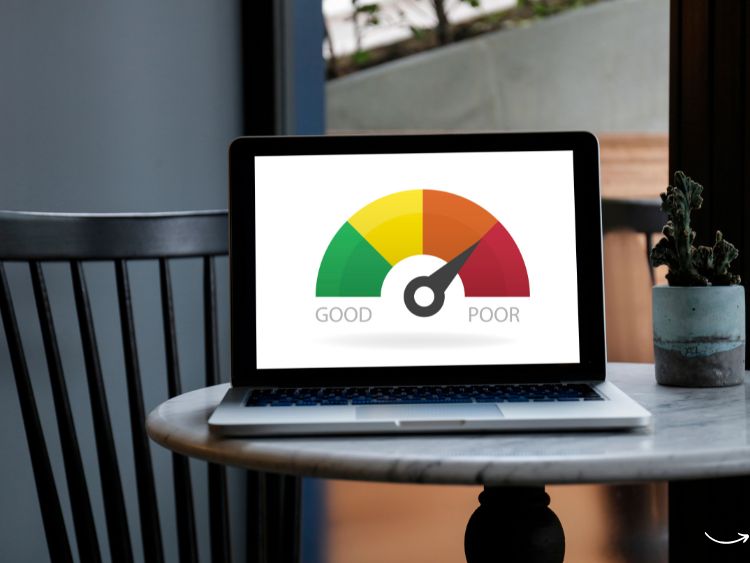So, you’ve found out you have a 674 credit score. Maybe you’re scratching your head, wondering if that’s good or bad, and what it means for your financial future. Well, buckle up because we’re about to take a deep dive into the world of credit scores, specifically focusing on that magical number: 674. Whether you’re aiming to buy a house, secure a loan, or just curious about where you stand, this article will give you the lowdown on everything you need to know about a 674 credit score.
What Is a Credit Score?
Before we jump into the specifics, let’s back up a bit and cover the basics. A credit score is a numerical representation of your creditworthiness, based on your credit history. It’s like a report card for adults, except instead of grades, you get a number that tells lenders how reliable you are when it comes to managing debt. The most common credit score used by lenders is the FICO score, which ranges from 300 to 850.
Breakdown of Credit Score Ranges
To give you a bit of perspective, here’s a quick rundown of the different credit score ranges:
- 300-579: Poor
- 580-669: Fair
- 670-739: Good
- 740-799: Very Good
- 800-850: Excellent
As you can see, a 674 credit score falls into the “Good” category, but just barely. This means you’re doing alright, but there’s definitely room for improvement.
What Does a 674 Credit Score Mean?
A 674 credit score is a bit of a mixed bag. On one hand, it’s a solid score that suggests you’re fairly responsible with your credit. On the other hand, it’s not quite high enough to get you the best interest rates or the most attractive loan terms. Lenders will see you as a moderate risk – not a huge gamble, but not a sure thing either.
How Lenders View a 674 Credit Score
When lenders look at a 674 credit score, they’re likely to take a cautious approach. You might be approved for loans and credit cards, but you won’t get the best rates. For example, you might qualify for a mortgage, but your interest rate could be higher than someone with a score in the 700s. The same goes for personal loans, auto loans, and even some credit cards.
Impact on Your Financial Life
A 674 credit score can affect various aspects of your financial life, including:
- Loan Approvals: You may get approved for loans, but the terms won’t be as favorable.
- Interest Rates: Higher interest rates on loans and credit cards.
- Credit Limits: Lower credit limits on credit cards.
- Insurance Premiums: Some insurers use credit scores to determine premiums, so you might pay more.
How to Improve Your 674 Credit Score
Alright, now that we know where you stand, let’s talk about how to move that number up. Improving your credit score isn’t an overnight process, but with some dedication and smart financial habits, you can definitely make it happen.
1. Pay Your Bills on Time
This might seem like a no-brainer, but it’s worth repeating: paying your bills on time is crucial. Late payments can have a significant negative impact on your credit score. Set up reminders or automatic payments to ensure you never miss a due date.
2. Reduce Your Credit Card Balances
High credit card balances can drag down your credit score. Aim to keep your credit utilization ratio below 30%. This means if you have a credit limit of $10,000, you should try to keep your balance below $3,000.
3. Avoid Opening New Credit Accounts
Every time you apply for credit, it results in a hard inquiry on your credit report, which can temporarily lower your score. Try to avoid opening new credit accounts unless absolutely necessary.
4. Check Your Credit Report for Errors
Mistakes on your credit report can unfairly drag down your score. Get a free copy of your credit report from each of the three major credit bureaus (Equifax, Experian, and TransUnion) once a year and check for errors. If you find any, dispute them immediately.
5. Keep Old Accounts Open
The length of your credit history also impacts your score. Even if you no longer use an old credit card, keeping it open can help boost your score by increasing the average age of your accounts.
6. Diversify Your Credit Mix
Having a mix of different types of credit (credit cards, installment loans, etc.) can positively impact your score. If you only have credit cards, consider taking out a small personal loan to diversify your credit profile.
FAQs About a 674 Credit Score
What Kind of Loans Can I Get with a 674 Credit Score?
With a 674 credit score, you can qualify for various types of loans, including personal loans, auto loans, and mortgages. However, the terms won’t be as favorable as those offered to individuals with higher scores.
Can I Get a Credit Card with a 674 Credit Score?
Yes, you can get a credit card with a 674 credit score. You may not qualify for premium cards with the best rewards and lowest interest rates, but there are plenty of options available.
How Long Does It Take to Improve a 674 Credit Score?
Improving your credit score can take time. If you follow the tips mentioned earlier, you might see improvements within a few months, but significant changes can take up to a year or more.
Does a 674 Credit Score Affect My Ability to Rent an Apartment?
Some landlords and property management companies check credit scores as part of the rental application process. A 674 credit score is generally considered acceptable, but you might be required to pay a higher security deposit.
Can a 674 Credit Score Affect My Job Prospects?
In some industries, employers may check your credit score as part of the hiring process. While a 674 score isn’t bad, it’s not stellar either. It shouldn’t be a major obstacle, but it’s something to be aware of.
Summary
A 674 credit score is a decent starting point, but there’s always room for improvement. By paying your bills on time, reducing your credit card balances, avoiding new credit applications, checking your credit report for errors, keeping old accounts open, and diversifying your credit mix, you can boost your score and unlock better financial opportunities. Remember, improving your credit score is a marathon, not a sprint, so stay patient and persistent.
Authoritative Links
Here are some authoritative sources for further reading on credit scores and financial health:
- https://www.myfico.com/credit-education/whats-in-your-credit-score
- https://www.consumer.ftc.gov/articles/0152-credit-scores
- https://www.annualcreditreport.com/index.action
- https://www.experian.com/blogs/news/2021/04/credit-score-statistics/
- https://www.transunion.com/credit-score
By following these guidelines and staying informed, you can take control of your financial health and work towards a brighter financial future.



